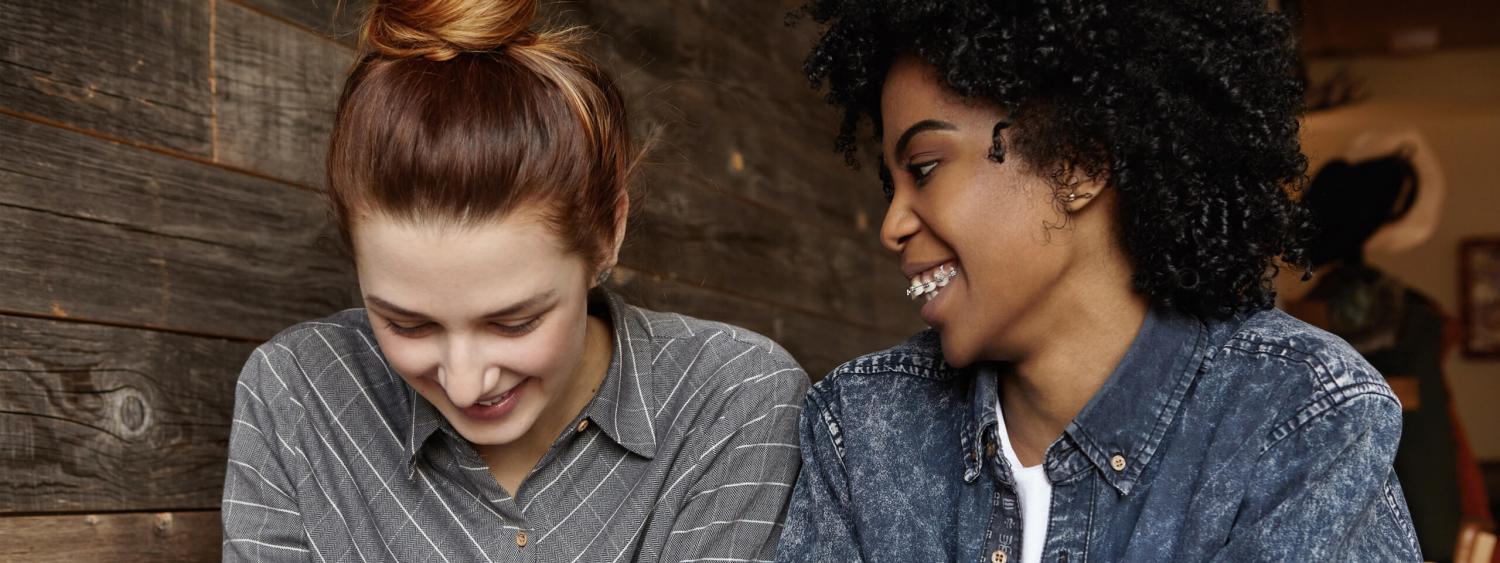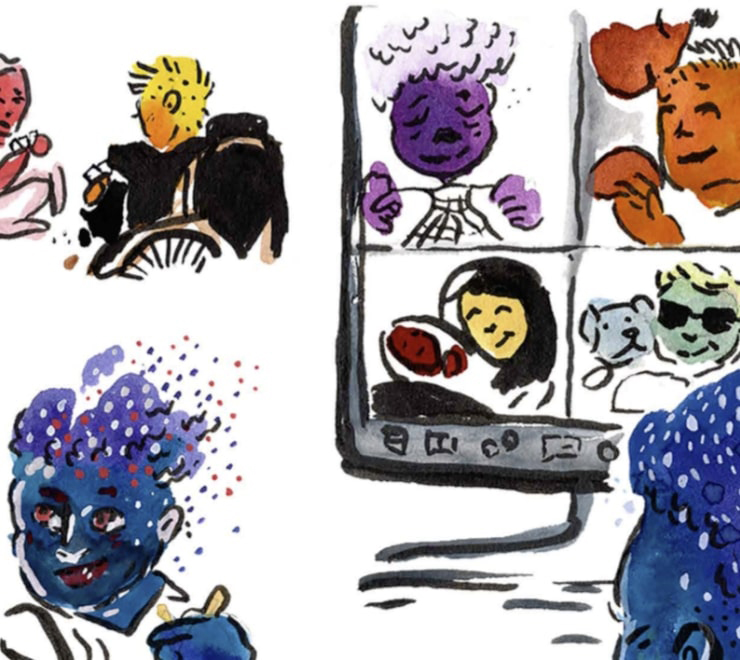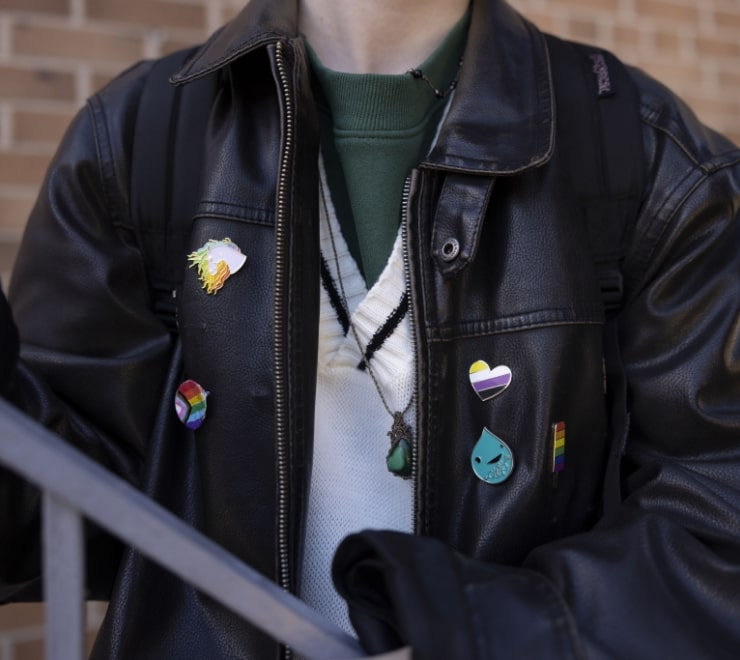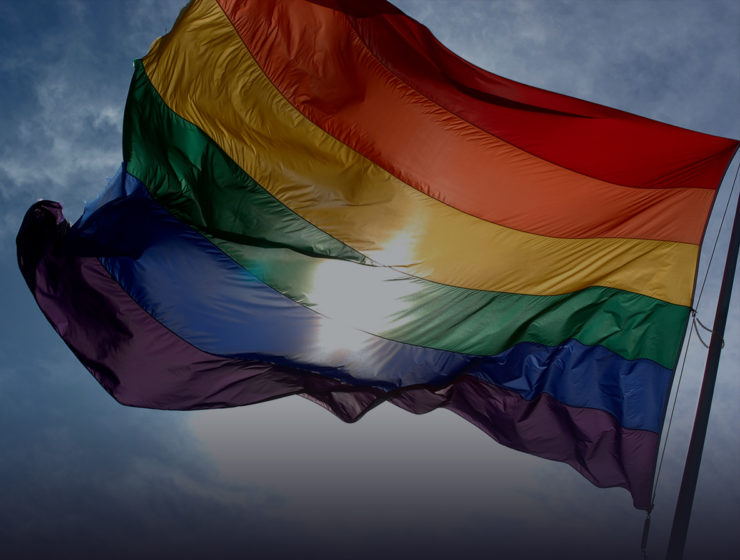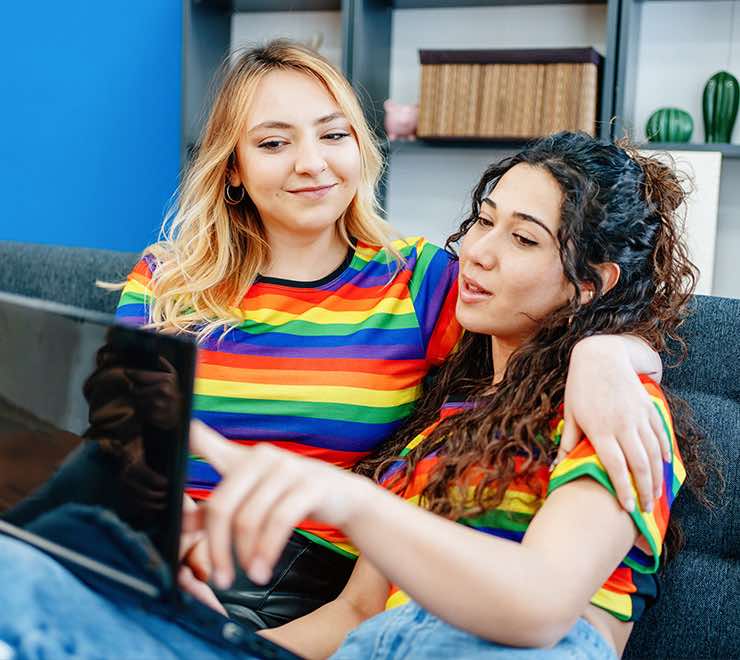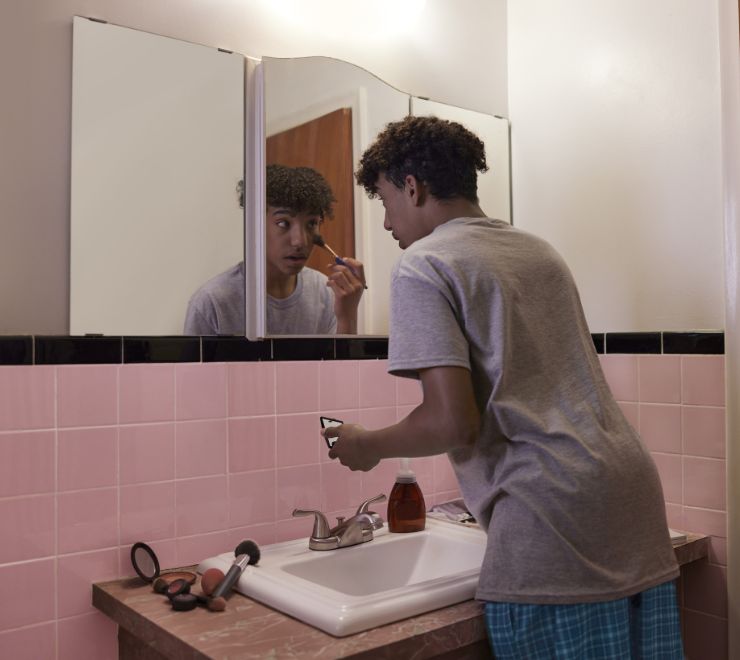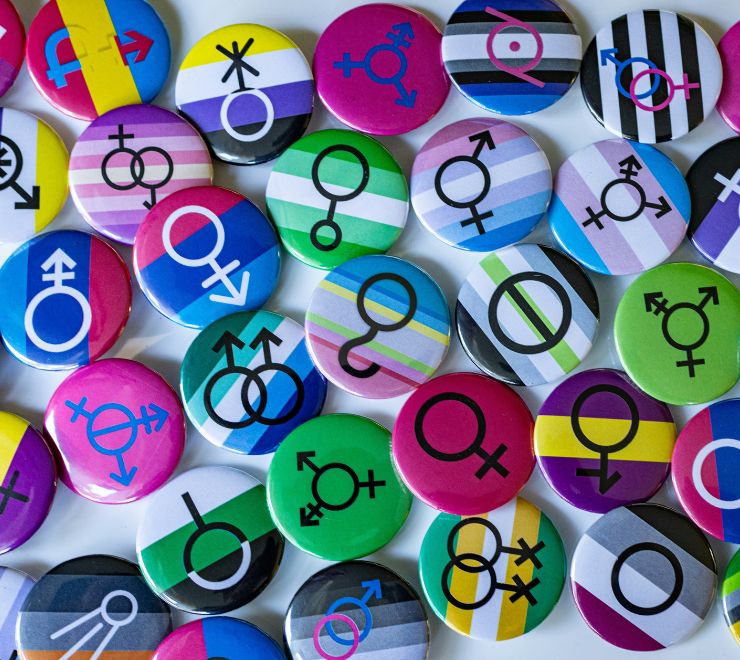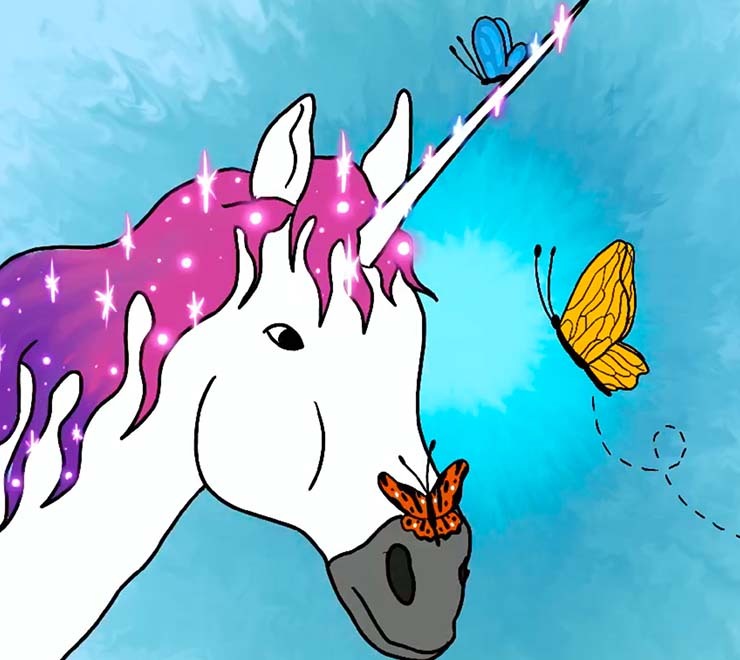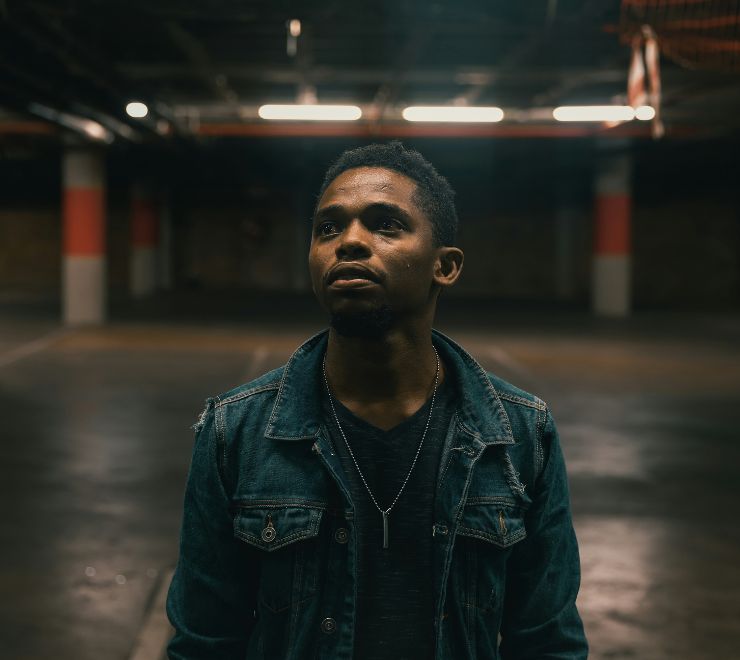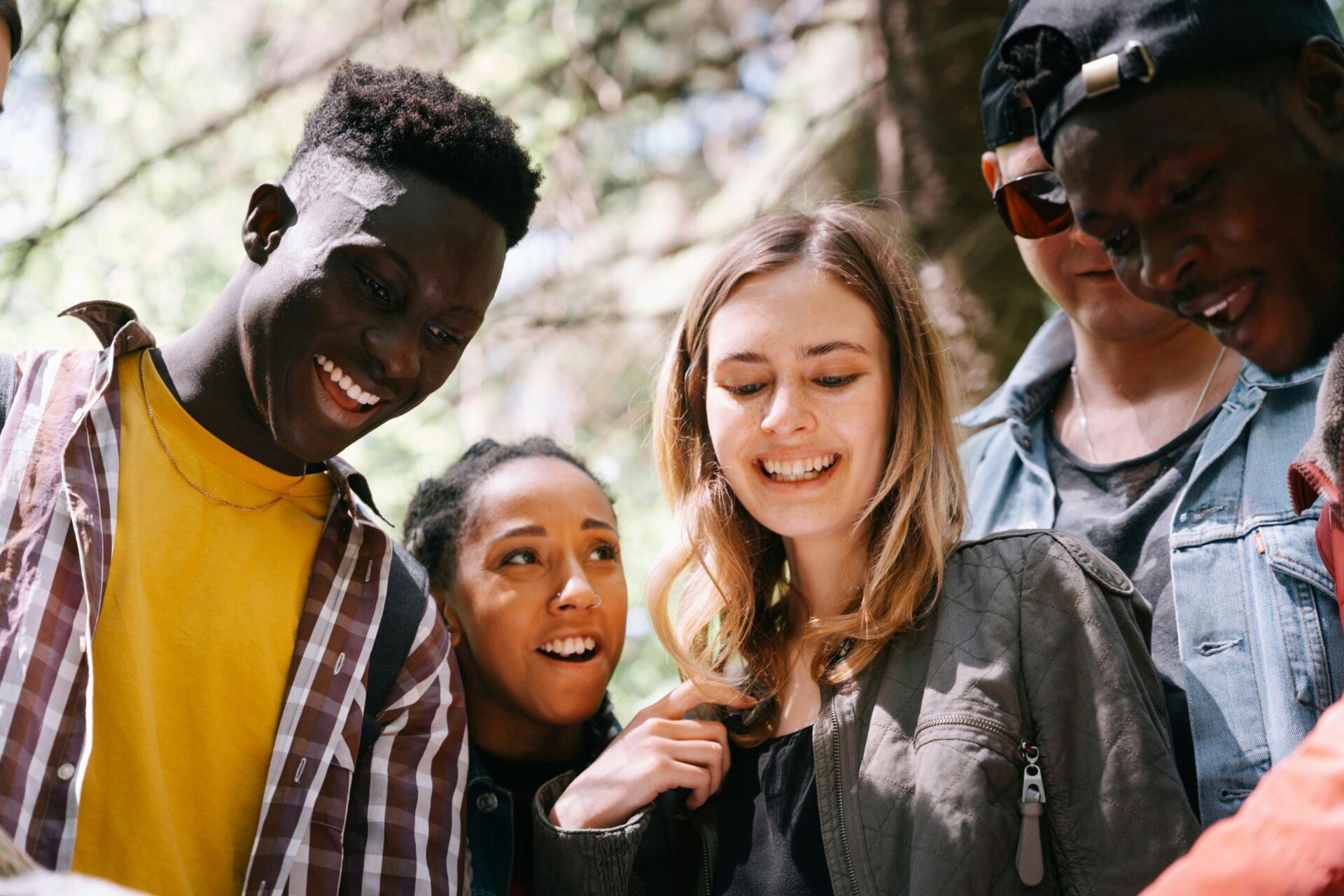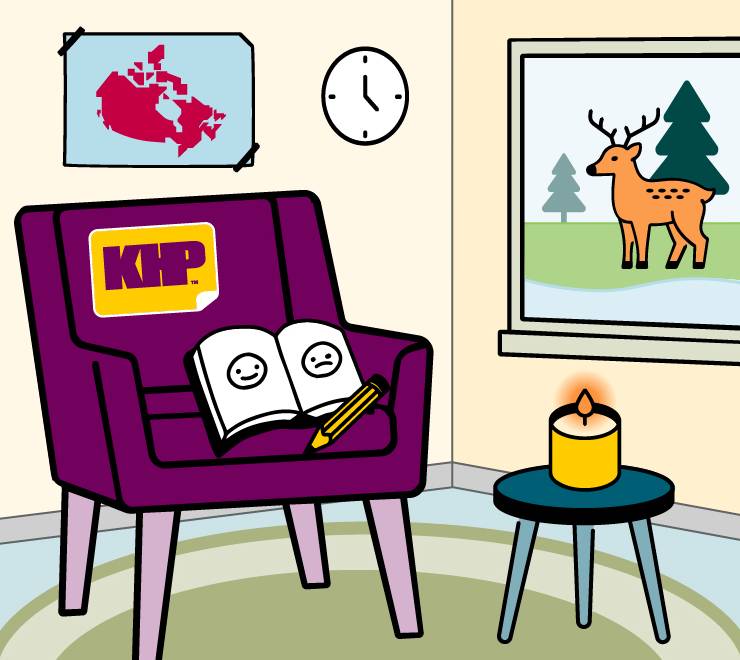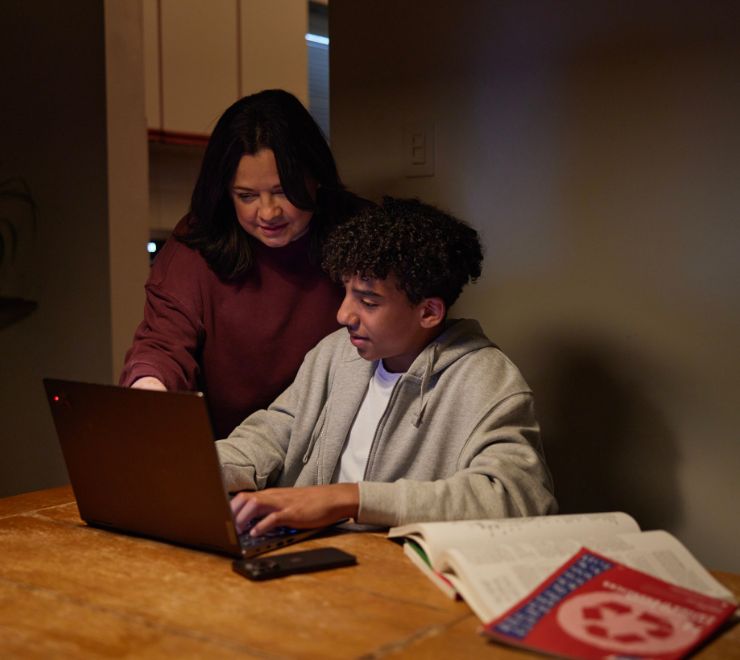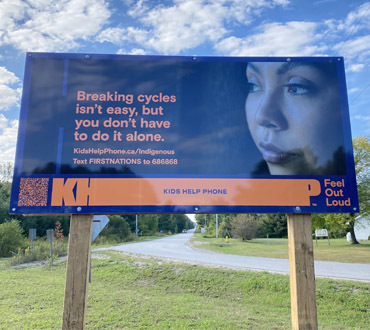If you’re questioning your gender or sexuality, it’s important to remember that whatever you’re thinking and feeling is OK. Many other young people are going through (or have been through) a similar journey to you and you’re never alone.
You may have a lot of valid questions about identifying as 2SLGBTQ+ such as:
- What will my life be like?
- What will happen if/when I come out?
- Will my parents/caregivers be OK with it?
- How will my friends treat me?
- Will my community still accept me?
- Where can I find other people like me?
How do I know if I identify as 2SLGBTQ+?
Some young people have been aware of their sexual orientation and gender identity for a long time. Others may not be as sure. Having feelings, dreams or experiences with / about someone of the same gender is common. Many young people also like someone of the same sex (e.g. you may have sexual dreams or feelings about someone who is the same sex as you). This can all be the beginning of you realizing that you identify as 2SLGBTQ+, but it may also be a part of the process of realizing that you’re straight. Either way, these feelings are a natural part of finding out who you are and getting to know yourself better.
Sexuality and identity are concepts that can evolve over time. Both your sexual orientation and gender identity may change at some point (or many points) in your life. There’s no rush to find a label that you connect with, especially if you don’t feel ready.
What if I’m worried about being treated differently?
Lots of young people who are questioning their sexual orientation and/or gender identity may feel excluded or isolated in their families or communities. Meeting other 2SLGBTQ+ young people is a good way to start recognizing that there are many other people going through the similar things as you. It’s also important to remember that differences are what make people human — sexual orientation and gender identity are just two more ways that you may be unique.
If you’re looking to meet other people in the 2SLGBTQ+ community, you can check to see if your school or community has a virtual club/group that creates space for 2SLGBTQ+ young people and where you can safely participate online. You can also access Kids Help Phone’s Resources Around Me for help finding 2SLGBTQ+ peer groups in your area.
You’re more than your sexual orientation and gender identity
Your gender identity and sexual orientation are only two parts of who you are. You can try listing all of the other qualities that make you who you are. Maybe you’re 2SLGBTQ+ and…
- a family member
- a friend
- an athlete
- funny
- excellent at math
- a magician
- a writer
- a musician
- a chef
- a photographer
- a dancer
- a beader
- and more
Make your list as long as you want. If you’re having trouble with your list, try asking people who care about you and know you well what they would put on your list.
Coming out
Coming out is the process of telling others about your sexual orientation and/or gender identity. Many people start by coming out to people they trust the most, like a family member or a few friends. If you identify as 2SLGBTQ+, you may be thinking about if/when you may come out (if you haven’t already) to people in your life.
Are you ready to come out?
Learning more about yourself, better understanding your identity (using the words that feel best for you and your experiences) and making decisions about coming out is completely up to you. The process of coming out is different for everyone — you may choose to come out to yourself only, and that’s OK. It’s also a lifelong process because you may need to decide whether or not to come out to every person you meet.
Ultimately, it’s a personal journey and you don’t have to come out to anyone unless you want to and you feel safe.
What to say
First, figure out where you want to come out to the person — at home, in a park or in a quiet spot. Choose a place that puts you at ease and where you can talk. Next, decide how you want to approach the conversation.
Here are some conversation starters:
- “I need to tell you something and I hope you’ll try to understand.”
- “I have something I want to share with you. I’m trusting you to keep this between us.”
- “I have something to tell you that’s hard for me to talk about.”
- “I want to talk to you about something important for me, but I’m afraid.”
If none of these work for you, that’s OK. Just speak from your heart and trust your intuition. It may help you to try practising or bouncing some ideas off of a professional counsellor at Kids Help Phone by calling 1-800-668-6868 or reaching out through Live Chat.
How people might react
It’s common to worry about how people will react. A lot of people aren’t aware of variations in sexual orientation and gender identity and may be afraid of what they don’t understand. Fear is often what motivates people to bully, abuse, ridicule, humiliate and shame. But fear is never an excuse for treating someone badly.
If you think your family or friends may be interested in learning more, you may want to refer them to PFLAG Canada for information and help. And remember, Kids Help Phone is available 24/7 if you or someone you know would like to talk.
Being prepared for all reactions
Unfortunately, not everyone will understand when you explain what’s going on for you. It can be helpful to think of how you’ll handle it if people don’t understand, don’t want to talk about it, become upset and/or discriminate against you. Will you leave the room? Call a friend? Take a walk? Having an exit strategy is a good idea in case things get intense. It’s important to make your safety a priority. It can be helpful to remind yourself that it may have taken you a long time to come to terms with your sexual orientation and/or gender identity, so others may need a bit of space to take it in, too. There are also some people who may never be able to accept it.
Remember that no matter how others react, you’ve done nothing wrong and deserve support.
Protecting yourself
Your safety is important. If you’re thinking about coming out, it’s crucial to learn about ways to protect yourself so you’re prepared in case you face any challenges. It may help to have:
- someone to talk to who’s not directly involved, such as a friend, neighbour, teacher or a Kids Help Phone counsellor (1-800-668-6868) or volunteer crisis responder
- somewhere to stay if you have to leave home
- a safety plan
Finding support
If people don’t respond to you in the ways you would like, try giving it some time. While you’re waiting, you can think about getting some emotional support. A Kids Help Phone counsellor can help you find ways to validate your experience and connect with other 2SLGBTQ+ youth. You can also use Resources Around Me to search for services in your area.
Coming out can be a unique process of self-discovery, and learning more about your identity can empower you with the language to communicate with others. It’s important to know that you’re the expert of your own experience. If you ever need support for your mental health, it’s important to reach out for help.
